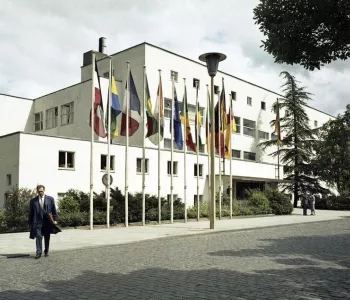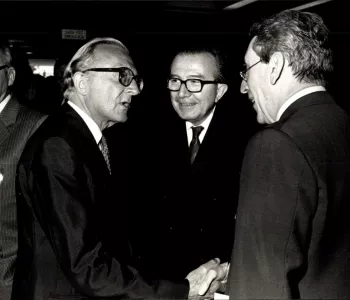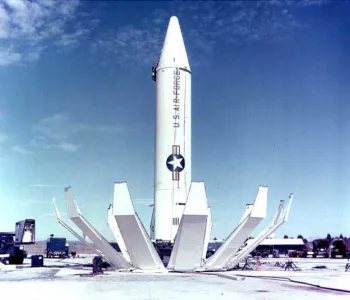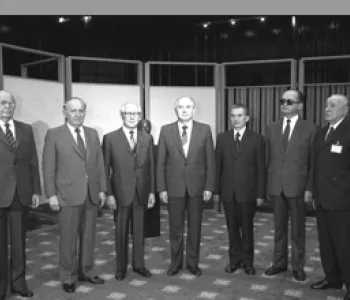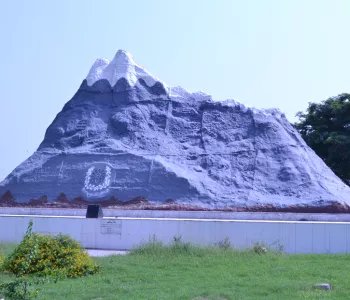The presenter of this address, Ahmed Ben Messali Hadj (1898-1974), is known as the “father” of Algerian nationalism, one of whose foremost biographies is Benjamin Stora’s Messali Hadj, 1898-1974 (2012). Having served in the French army in 1918-1921, Messali Hadj for economic reasons moved to Paris. There, he met his French wife, the leftist Emilie Busquant. In 1925, he was recruited to the French Communist Party’s (PCF) colonial commission. In June 1926, he co-founded, and became Secretary General of, the Etoile Nord Africaine (ENA), which at first demanded political and legal equality for France’s Muslim North Africans. As this text shows, demands shifted by February 1927. That month, ENA functionaries including Messali Hadj travelled to Bruxelles. Together with leftists and delegates from three dozen colonized countries, they participated in the founding conference of the League against Imperialism (LAI), which was initiated by the Moscow-headquartered Comintern and organized by the PCF and the German communist Willi Münzenberg; the experience in Bruxelles of one non-Arab delegation, India, has been analyzed in Michele Louro’s Comrades against Imperialism: Nehru, India, and Interwar Internationalism (2020).
It was in Bruxelles that Messali Hadj held the below address, speaking ex catedra as his notes had disappeared. The LAI was soon paralyzed by discord between communists and activists for whom allying with communists was a means to an anticolonial end; in 1936, it dissolved. Even so, it was the first truly international attempt to combat imperialism, as shown by the edited volume The League against Imperialism: Lives and Afterlives (2020). As for the ENA, it in 1928 cut its ties with the PCF, being too independent-minded and -organized and vexed that the PCF, following the Comintern line, was moving away from ENA’s ideas about self-determination. In 1929, the French government outlawed ENA. In the 1930s Messali Hadj became closer inter alia to Shakib Arslan, translated excerpts of whose work Why Muslims Lagged Behind and Others Progressed is included in this collection. Even so, in 1936 to early 1937 a rebranded ENA shortly joined the leftist French Front Populaire, but then again was closed down. Messali Hadj reacted by establishing the clandestine Parti du Peuple Algérien (PPA), which—a shift—demanded absolute Algerian autonomy within the French Republic.
Condemned by the Vichy government to hard labor in 1941, Messali Hadj returned to Algeria in 1945. He continued to play a leading political role, founding in 1946 a PPA successor, the Mouvement pour la triomphe des libertés démocratiques. But from 1954, his star declined. By 1957, the Front de Libération Nationale, the new organization that in November 1954 started the War of Independence, ravaged the Mouvement National Algérien that Messali Hadj had founded that month, too. Politically neutralized, he stayed in France. He was allowed to return to Algeria only after his death, in 1974, for burial in his hometown of Tlemcen.





